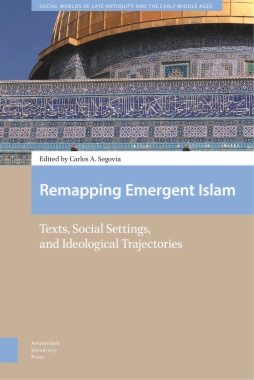This multidisciplinary collective volume advances the scholarly discussion on the origins of Islam. It simultaneously focuses on three domains: texts, social contexts, and ideological developments relevant for the study of Islam’s beginnings -- taking the latter expression in its broadest possible sense. The intersections of these domains need to be examined afresh in order to obtain a clear picture of the concurrent phenomena that collectively enabled both the gradual emergence of a new religious identity and the progressive delimitation of its initially fuzzy boundaries.
- Cover
- Table of Contents
- Introduction
- Part 1: Re-Assessing the Hypothesis of a
Peripheral Jewish Background
- 1. South Arabian ‘Judaism’, Ḥimyarite Raḥmanism, and the Origins of Islam
- 2. Early Islam as a Messianic Movement: A Non-Issue?
- Part 2: An Encrypted Manichaean / Messalian Matrix?
- 3. The Astral Messenger, The Lunar Revelation, The Solar Salvation: Dualist Cosmic Soteriology in The Early Qur’ān
- 4. Messalianism, Binitarianism, and the East-Syrian Background of the Qur’ān
- Part 3: Measuring the World’s Timeline… and Imagining the Afterlife at the Persian Court?
- 5. The Jewish and Christian Background of the Earliest Islamic Liturgical Calendar
- 6. The Persian Keys of the Quranic Paradise
- Part 4: Conceptual Quicksand, Meta-Narratives of Identity, Texts and their Marginalia
- 7. Divine Attributes of ‘Alī in Shi’i Mysticism:New Remarks on ‘Heresy’ in Early Islam
- 8. Echoes of Pseudepigrapha in the Qur’ān
- 9. What Do We Mean by THE Qur’ān: On Origins, Fragments, and Inter-Narrative Identity

